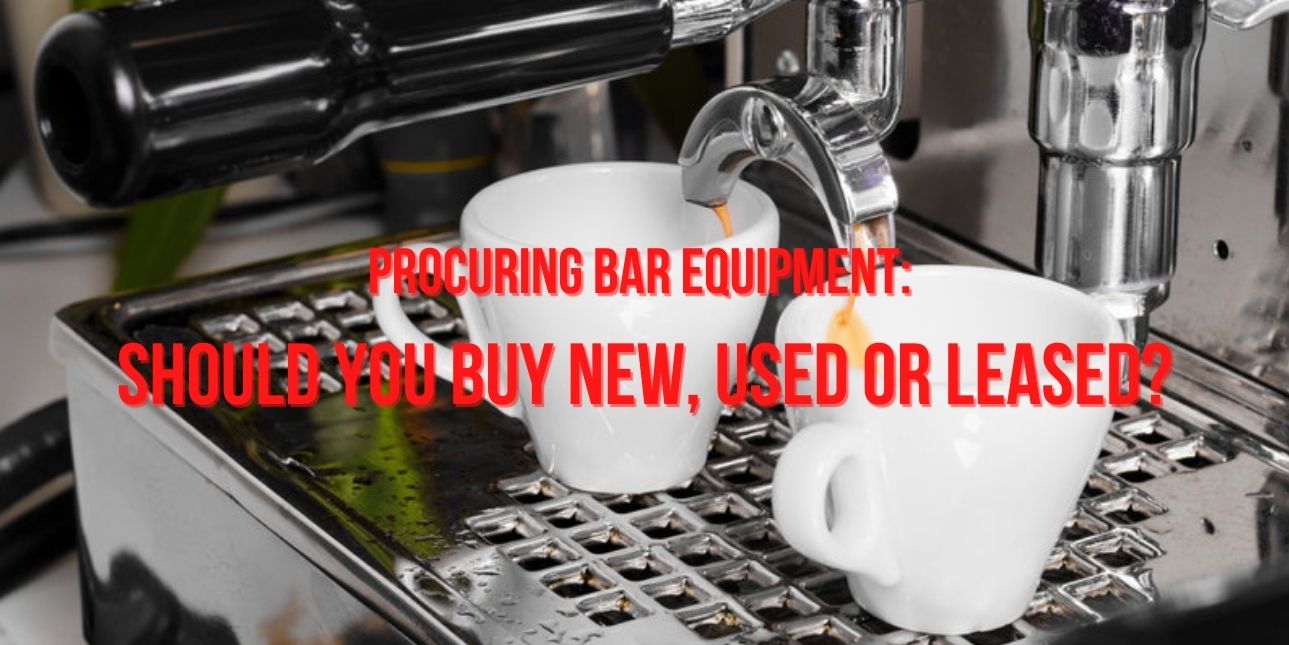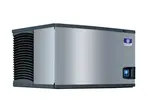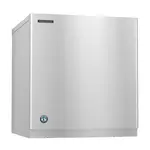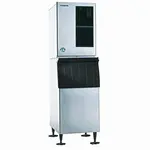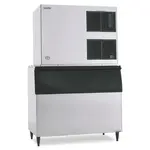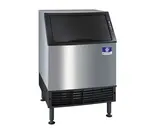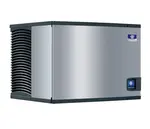The hottest topic when it comes to setting up new bars and bistros is if you should buy new, used, or lease commercial bar equipment. The debate between new bar equipment and used bar equipment is age-old and deservingly so. Bar supplies and equipment are essential to the functioning of your restaurant or eatery and factor into the profit you will make. Ensuring the quality of bar equipment is of primary importance. Each option, whether used bar equipment or new bar equipment, has its benefits and shortcomings that need to be considered before you go ahead and make any purchases or deposits.
The best approach is to consider all three options and figure out individually what bar equipment solution works for you. Since purchasing bar equipment is no cheap affair, it's important to come up with a customized solution that can work best for you. This may depend on a variety of factors like the number of customers you intend to serve, the expected margins you intend on making, and the length for which you intend on retaining each piece of bar equipment. Read on as we discuss the various advantages and disadvantages of new and used bar equipment, along with a third option - leasing.
New Bar Equipment
Purchasing new bar equipment is often advantageous since you can induct brand new equipment that has seen no history of malfunctioning. However, the bar can require large pieces of equipment like commercial ice machines and ice makers which can make the process quite a pricey affair. Irrespective, new bar equipment has a set of advantages that are bound to factor into your decision, they include:
No history of defects and malfunctioning parts.
They come with a fresh, new, and long warranty cycle with an option to buy longer periods of warranty.
State-of-the-art advances are incorporated in newequipment.
Long lifespan of the bar equipment guaranteed by the manufacturer.
Free servicing by the company for a stipulated period.
No dated equipment makes it to your arsenal, even older models come with the newest updates.
Long-term technical support from the manufacturer.
While the advantages of new equipment can be plenty, there also exist drawbacks that need to be considered to come to a balanced decision. Here are a few disadvantages of buying new bar equipment:
The value of the new bar equipment depreciates immediately after purchase. Prices can fall nearly to half the buying price by merely taking the unit out of the showroom.
New equipment comes with a higher upfront cost and potentially higher deposit rates.
Additional periods of warranty can be costs added to the price of the equipment. When factoring in equipment insurance and warranty, the cost can become too high for certain establishments to afford.
It's often better to buy new bar equipment that's bound to be used frequently than items that have a general functionality between two or three years. Such equipment can be sourced from a used dealer or leased to help you save costs.
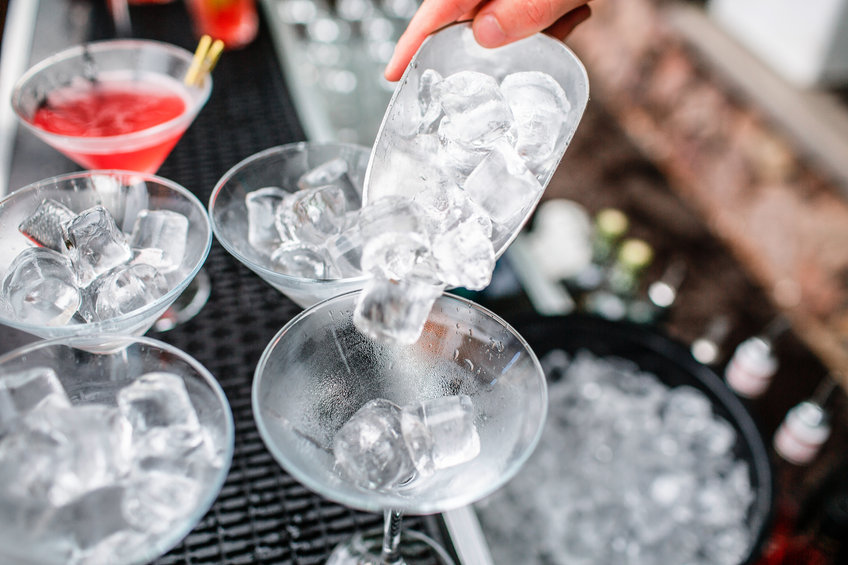
Used Bar Equipment
Used commercial bar equipment has a set of advantages but is often overlooked due to concerns regarding the warranty, age, and quality. These issues are not of much concern if the equipment is not an electronic, electric, or complex mechanical unit. However, if you're looking to source equipment like used commercial icemakers, it's important to consider several factors before you make a final call. Here are some advantages of used equipment:
The starkest difference between used and new bar equipment is the price. The difference is so marked that it can help restaurateurs buy other pieces of bar supplies and equipment.
Used equipment has a slower depreciation rate when compared to new equipment.
Business owners can stock the whole bar with used equipment if they're ready to forego some features. Certain used equipment isn't used per se but might feature minor mechanical defects like scratches leading to a depreciated value. These are perfectly good and near-new pieces of equipment that can be purchased for much lower prices.
The prices of used equipment can be negotiated with dealers, unlike new equipment.
Tax codes and rebates apply even to used bar equipment, and the benefits can be availed no matter the nature of the equipment.
Like two sides to a coin, used bar equipment also comes with pros and cons. Some of the less attractive aspects of buying used bar equipment include:
Used equipment poses problems for traceability and makes it difficult to verify the operational history of the used bar equipment.
Used equipment comes with the risk of being outdated and not up to the current standards of kitchen equipment. This can compromise operational capacity in some cases.
Many pieces of used bar equipment do not come with warranties. This might translate to additional costs every time you need to repair and service them.
Dealers might not always be honest about pre-existing problems seen by old owners when selling you the equipment. This leads to you buying possibly faulty and defective used bar equipment.
Availing a complete repair history is also difficult when it comes to used equipment, potentially skewing the facts and essential details about frequent problems faced by the machine.
Despite the risks and issues, used bar equipment can prove quite handy when you can ascertain important details like warranty, model numbers, operational history, and an assessment of wear and tear. It is a good measure to purchase used equipment that is built to last long during manufacturing as in the case of large commercial refrigerators and commercial ice makers.
Leasing Bar Equipment
Apart from the traditional new and old equipment options, companies and dealers are also offering the option to lease bar equipment. Equipment can be leased for a limited period, following which you can choose to either extend the lease or end it depending on your requirement. Leasing comes with its own set of advantages and disadvantages, as is with any option of equipment procuring. The advantages entail:
Leasing is perfect for small establishments and bars that are new to the business. Businesses looking to gauge the amount of customer volume and usage frequency can benefit from leasing commercial bar equipment.
Companies often provide new equipment to business owners when signing a new lease. This option can be availed again when renewing the lease.
Leasing provides a flexible option that doesn't physically or financially tie you down with machinery. This is best suited for equipment you plan on using for a maximum of two to three years or for equipment that doesn't see much action in the kitchen.
No added maintenance costs as most leases cover the price of repairs and service.
Ice machines, large refrigerators, beverage makers can all be leased at attractive prices.
Leasing has a few drawbacks too, these include:
Usage of a particular machine is limited to a timeframe. Even if your product works fine, it might be replaced by the company after renewal.
Despite payment and contracts, business owners do not own equipment when the lease ends and are faced with the same question - used, new, or lease?
Lease contracts cover only that period and the terms can change for a renewed contract.
Purchasing bar supplies and equipment is no easy task. Be sure to consider all pros and cons, equipment details, warranties, guarantees, model numbers, history of the equipment, and specifications before you choose to invest your money. You can also refer to bar equipment buying guides before you make your purchases.

